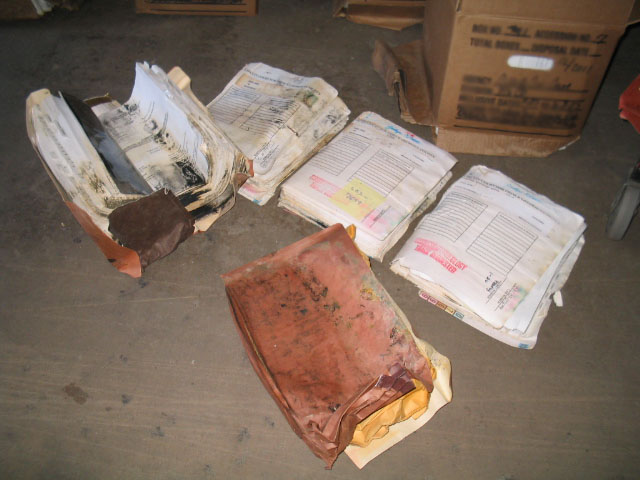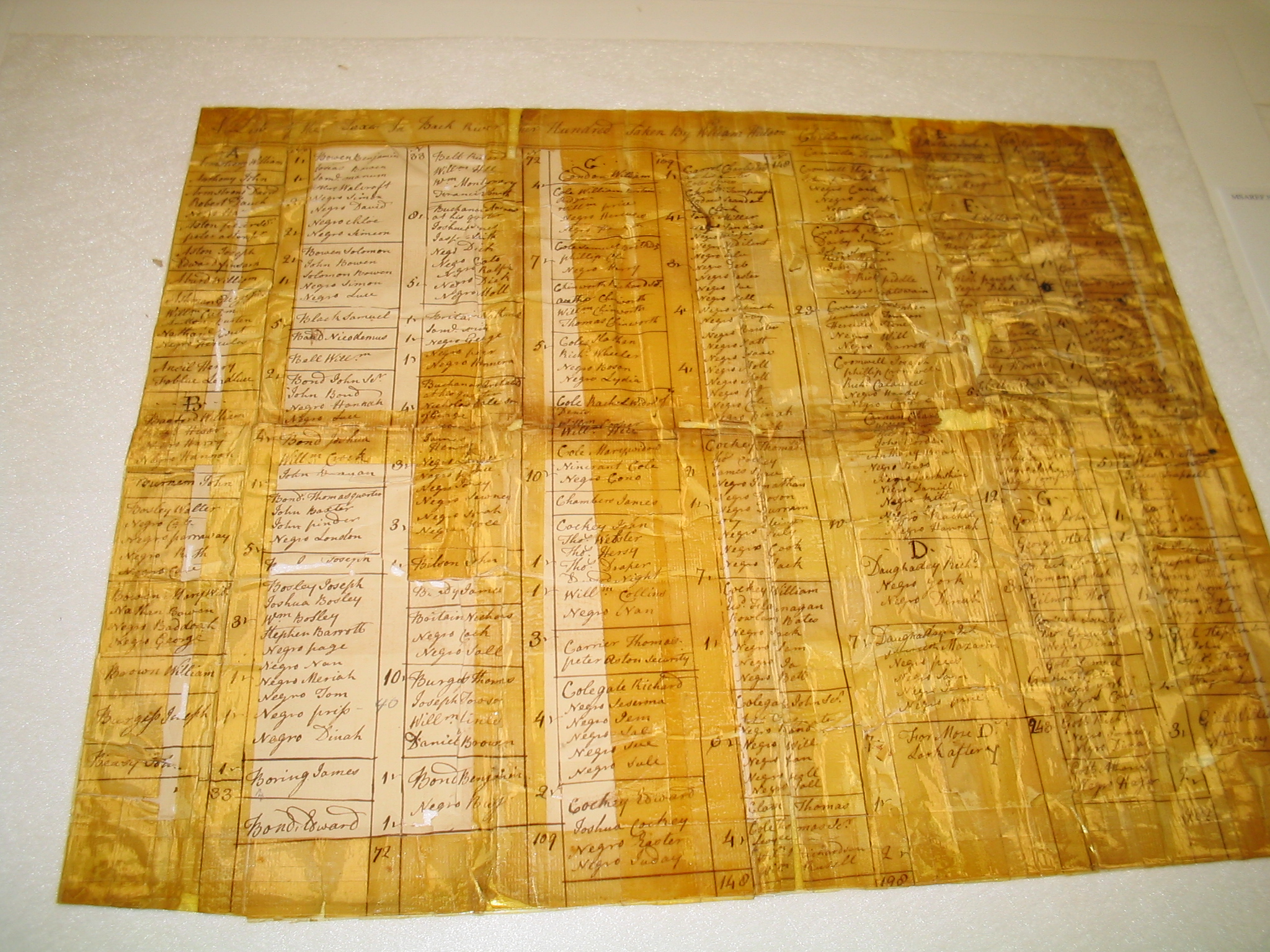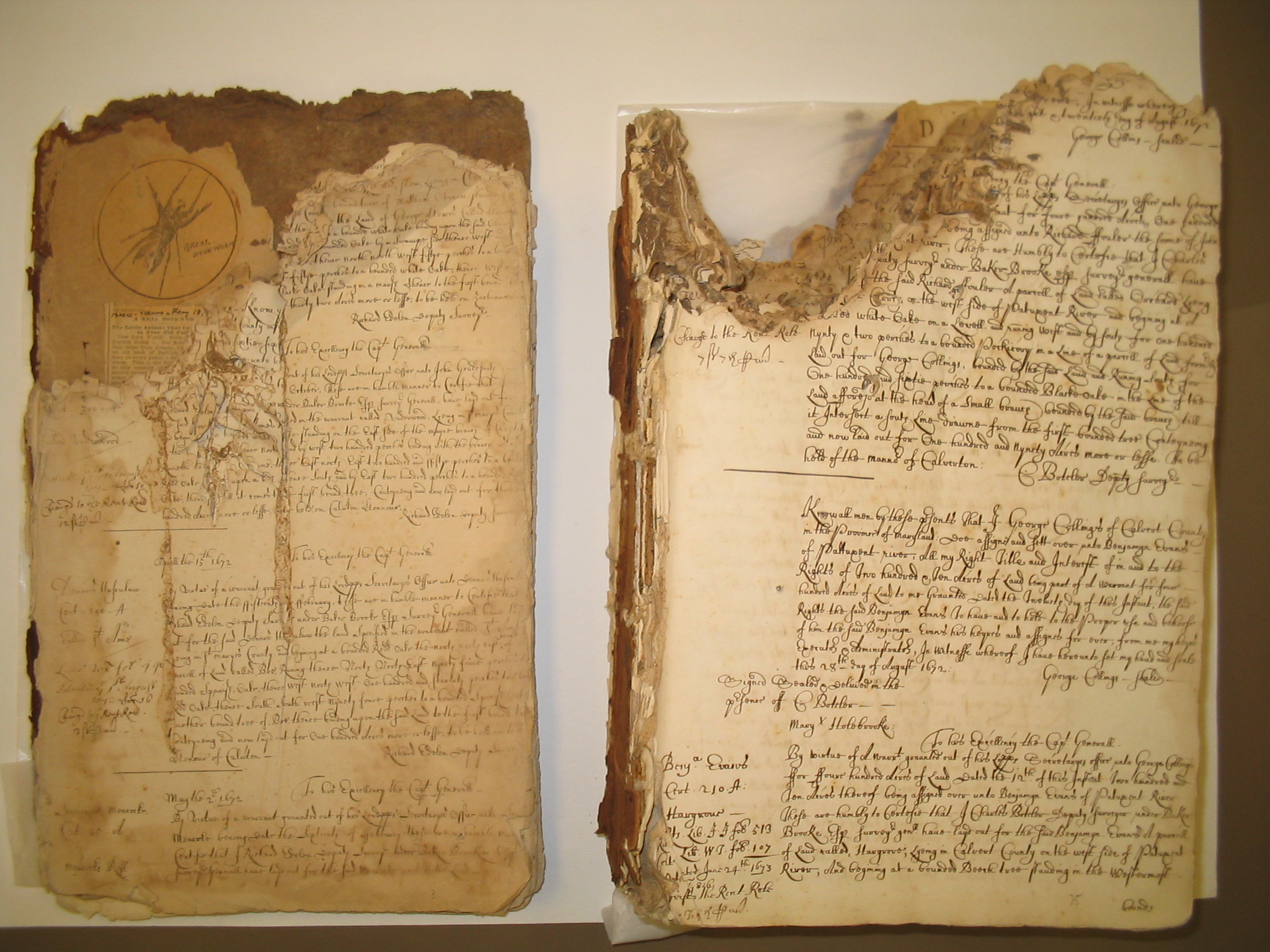|
|
Handling and Storage Guide
Proper handling of documents, photos, and books is crucial to their ongoing survival. Without careful and proper
handling, these items won't survive for future generations.
Wash and dry hands often and always before handling books and papers, or photographic materials. Oils
from your skin, hair, and especially forehead, create non-removeable stains. Be aware of not touching your forehead
with your hands, as this amount of oil will absolutely cause disfiguring fingerprints, permanently fixing any loose dirt.
Keep food and drink away from all objects you value. Spills happen! All food and drinks
should be consumed away from desks or tables with valued materials on them. In addition to causing permanent stains,
food residues attract insects to eat books,photos, textiles, and documents. After a meal or snack, always wash and dry your hands before resuming
work with these objects.

Never store documents or books on the floor, especially if they are in a basement. If at all possible
keep books and paper in a living space, not a basement or an attic. These records were left in a basement that flooded,
as a result they are warped and dirty. Moisture also allows for mold growth. Once mold appears it can never fully
be removed.
Gloves are available in a variety of sizes from many suppliers. They come in single-use nitrile or latex, or in reusable
cotton. Wash used cotton gloves and rinse thoroughly. Always wear gloves when working with photographs
and negatives. However, if you carefully wash your hands then gloves do not always need to be worn
when handling books and paper.
Never use a book to press flowers. The added thickness will eventually break the binding. Never rest books open
with covers up to save a spot. If a bookmark must be used, be sure it is of thin, acid-free paper, and it is not left for a
prolonged time.
Move items safely. Get a rigid paper or board for support to move fragile papers without causing damage. If something
is big, ask a friend to help move it.

Never apply tape or sticky notes to books, photographs or any other object you value. Although tape may seem to
help mend a rip, it actually causes far more damage in the long run. Anything that is self-sticking contains chemicals that
continue to act on a surface for years, causing brittleness, discoloration, and possibly loss.
Never remove books from a shelf by pulling on the top of a book. Push the neighboring books toward the back of the
shelf, and then pull out the book you want by the center of its spine. Store oversized books flat or spine down, never
spine up.
If an item is crispy, brittle or cracked as you unfold or unroll it, STOP and consult a conservator. To find a conservator
call the AIC at 202-452-9545 or email info@aic-faic.org.
 Never store items you value in the attic garage or basement. Check all items thoroughly and immediately if you see
"sawdust", bugs or water. One should check items frequently to ensure that if damages such as roof leaks or bug
infestatations occur, they cause the minimal possible damage. One should consult a conservator promptly.
Never store items you value in the attic garage or basement. Check all items thoroughly and immediately if you see
"sawdust", bugs or water. One should check items frequently to ensure that if damages such as roof leaks or bug
infestatations occur, they cause the minimal possible damage. One should consult a conservator promptly.
Here you can see what bugs can do to paper over time.

Your Family Papers
Although we do not recommend treatment of documents to neutralize acid unless it is done in a laboratory setting by qualified
paper conservators, there are several things you can do at home to help preserve your important papers. Through proper
handling and storage as outlined above, you can:
- reduce the stress on paper fibers by gently unfolding and flattening documents
- remove staples, paper clips and other extraneous and potentially harmful items from paper
- photocopy orginial documents (i.e., newspaper clippings) which cannot be saved or handled easily in their current state
- place individual documents into acid-free sleeves or between acid-free bond paper
- protect documents from the harmful effects of light by storing them in acid-free folders in an archival quality acid-free box
|



